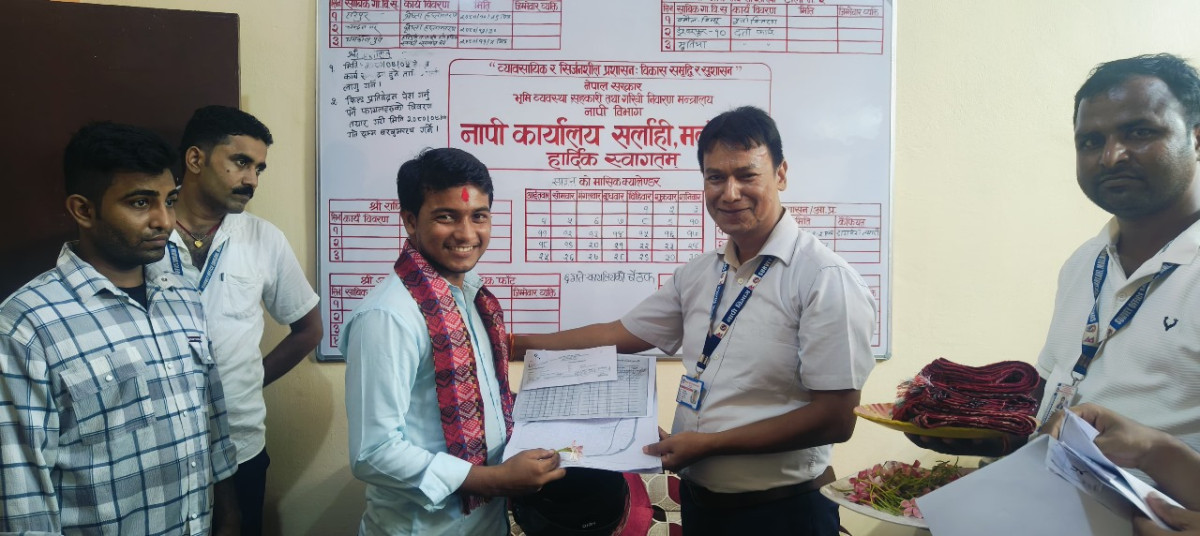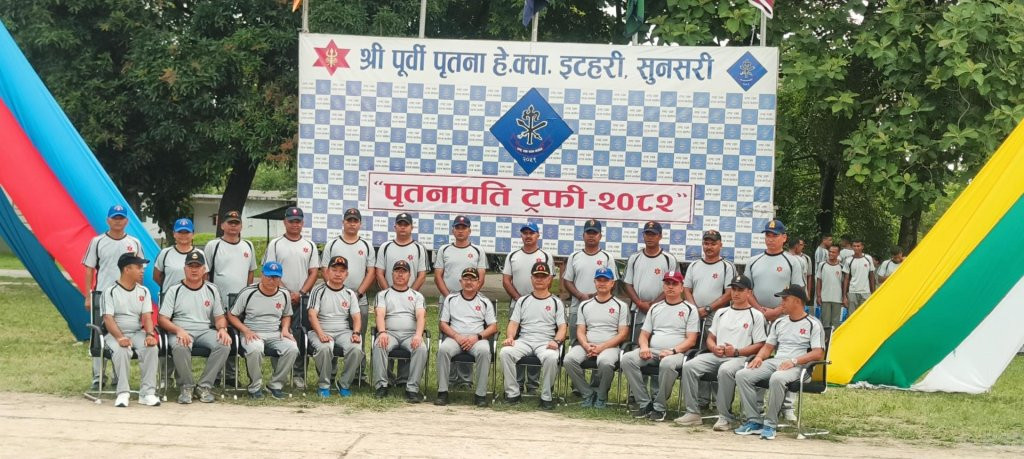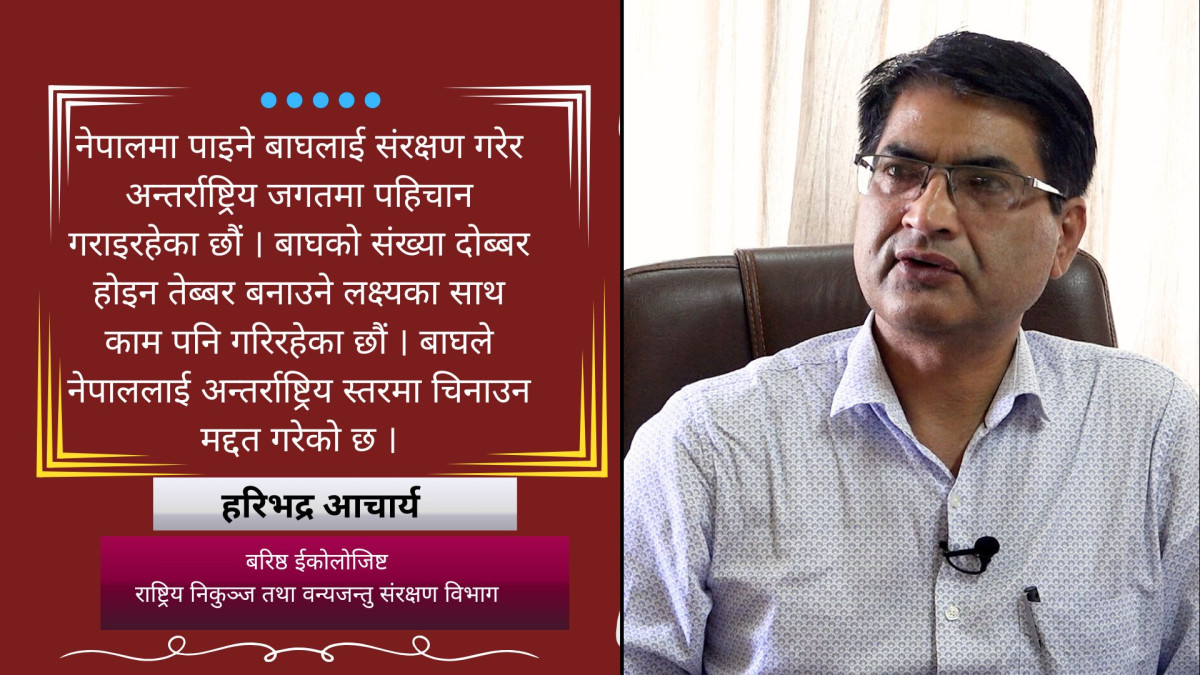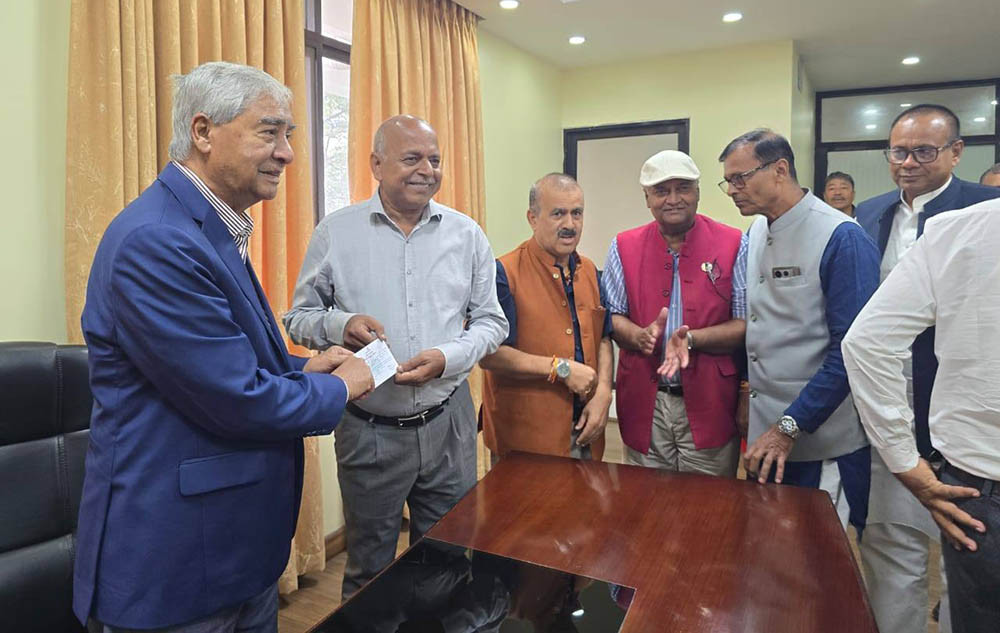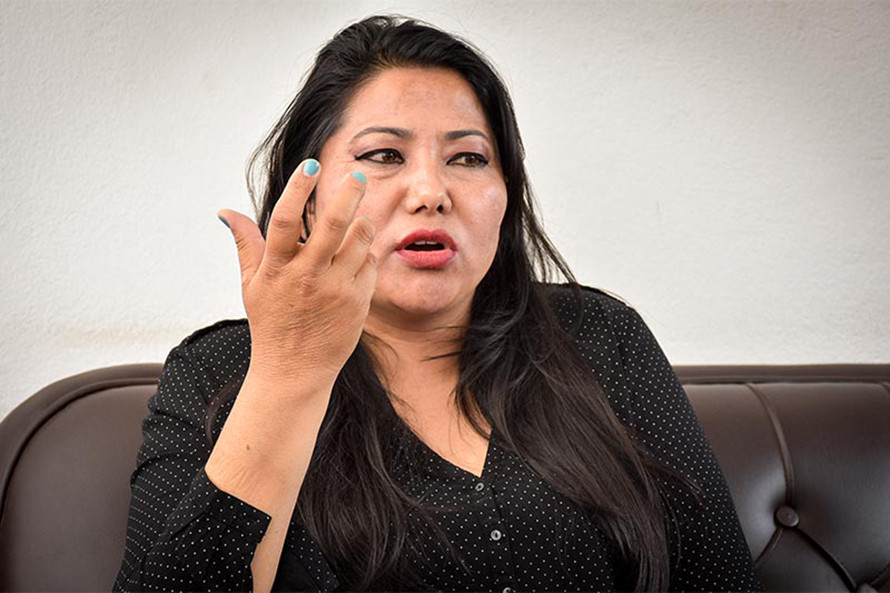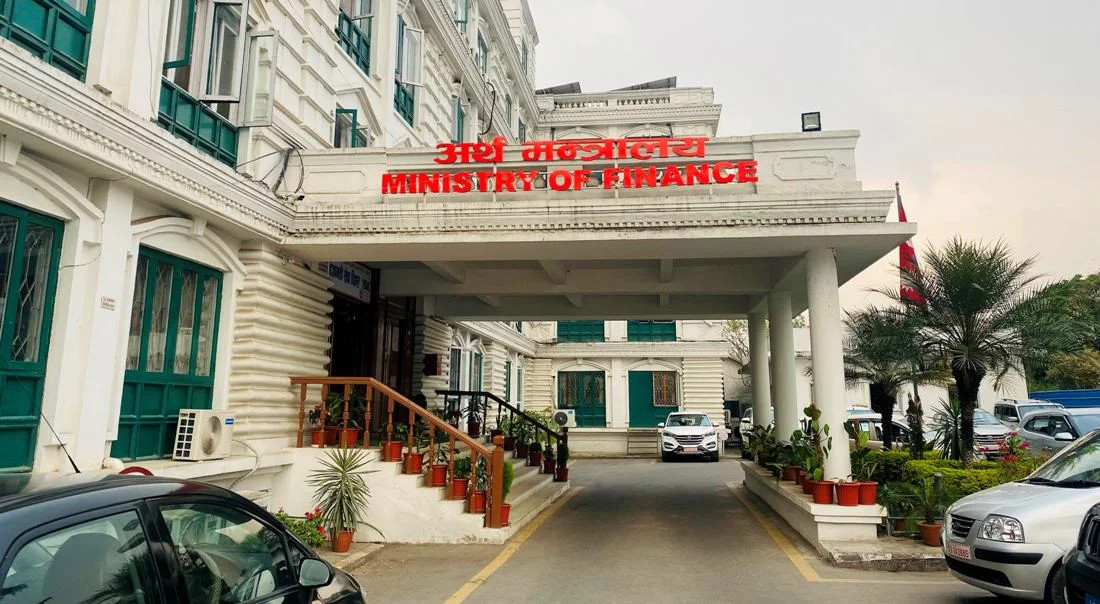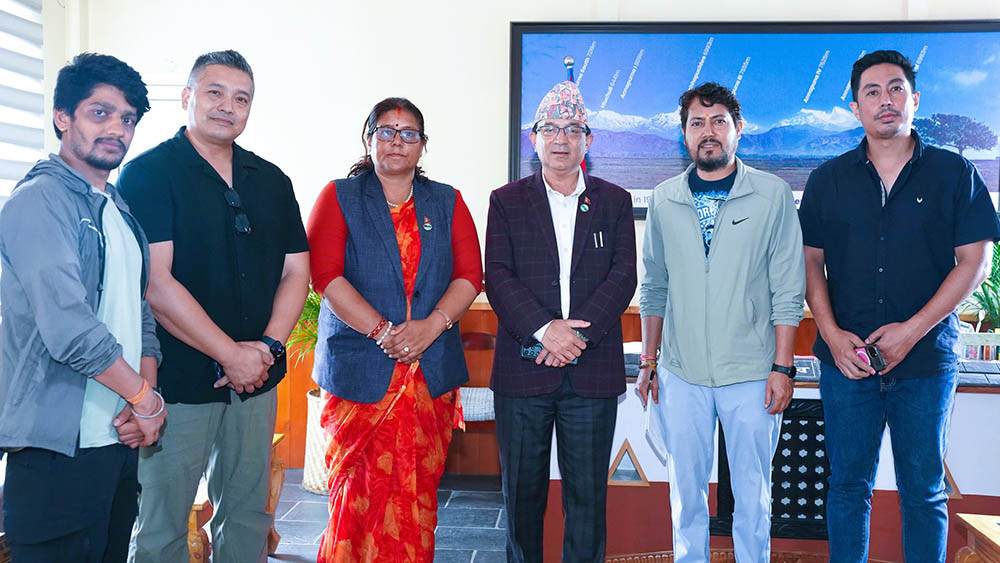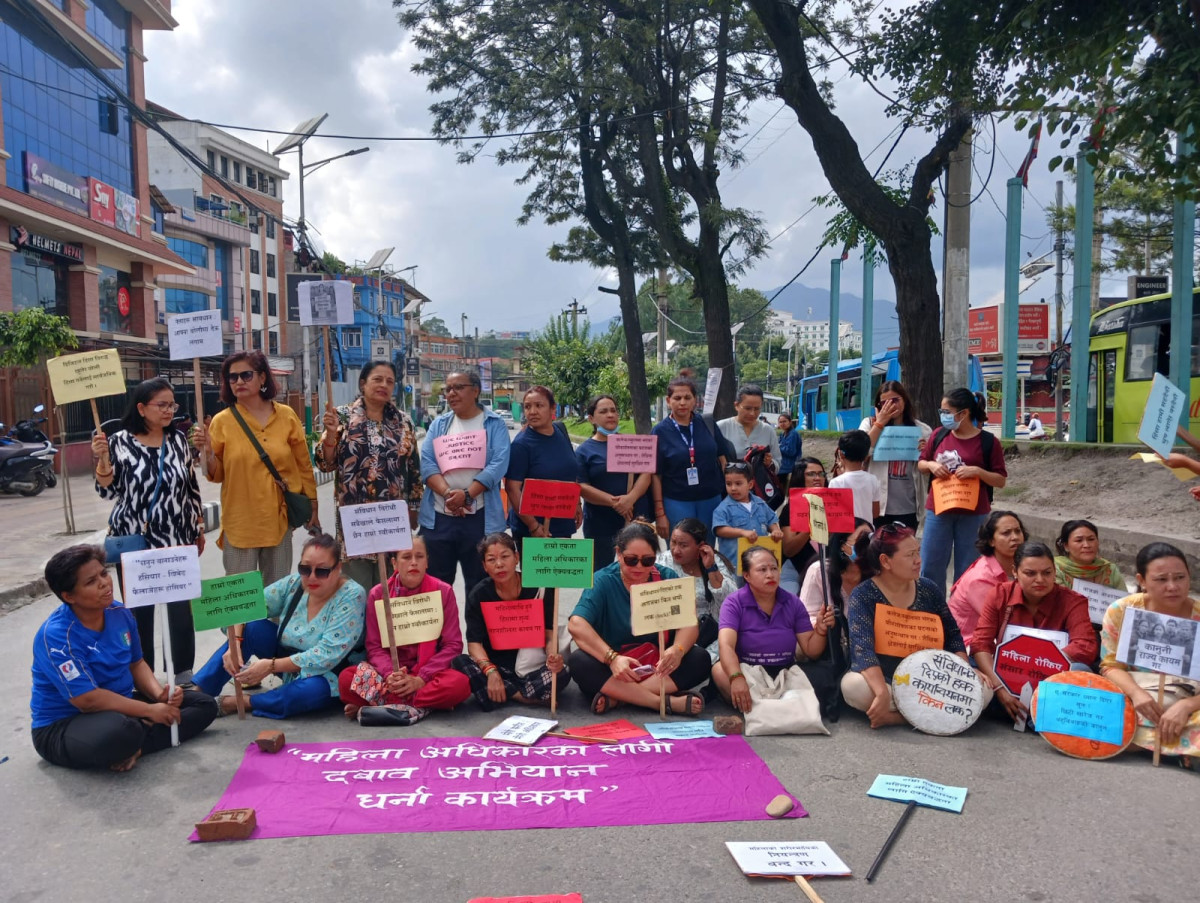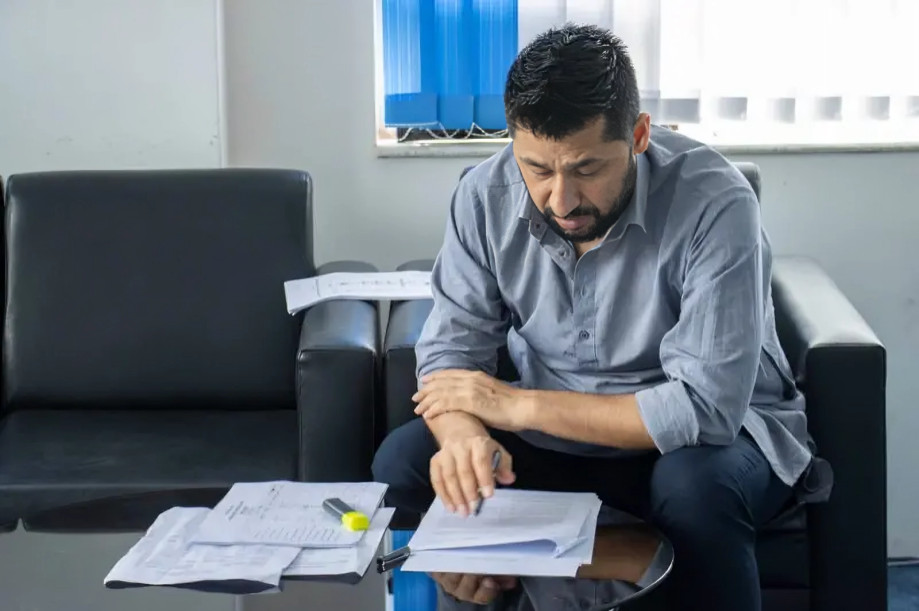Zhang Huibo, a Professor Level II and Ph.D. in Engineering, serves as the Party Committee Secretary of Ningbo Polytechnic. He holds various concurrent positions, including Chairperson of the National Council for Vocational College Presidents, Vice President of the Vocational Education Branch of the China Association of Higher Education, Chairman of the Belt and Road Industry-Education Integration Alliance, and Executive Council Member of the 6th China Education Association for International Exchange.
His research focuses on higher vocational education management and internationalization, having led over 10 provincial and ministerial-level projects and published over 100 academic papers. Notably, he directs the National Teaching Resource Repository and has received multiple Science and Technology Progress Awards and Teaching Achievement Awards at provincial and national levels.
In an interview with Nepalese journalists Pratima Silwal and Mahesh Pandey, he shared insights on China's national transformation through vocational education and its potential applicability in developing countries like Nepal.
Professor, can you briefly introduce China's vocational colleges, particularly those under the 'Double High-Level Plan' initiative?
To begin with, I'd like to provide a systematic overview of the 'Double High-Level Plan.' To grasp its deeper significance, let's examine the evolution of vocational college development in China. China's vocational college development is a relatively recent phenomenon, with significant growth occurring over the past two decades.
This development is closely related to China's economic development. The Chinese government launched a series of projects to ensure vocational colleges cater to the needs of enterprises. Around the year 2000, the government established several vocational schools.
To improve the quality of vocational colleges, starting from 2006, the Chinese government launched a program that incorporated around a hundred colleges into high-quality vocational colleges.
But at that time, nobody had a very specific idea about the next steps. So, the government selected 100 vocational colleges to conduct experiments. For example, our school specializes in designing talent training programs.
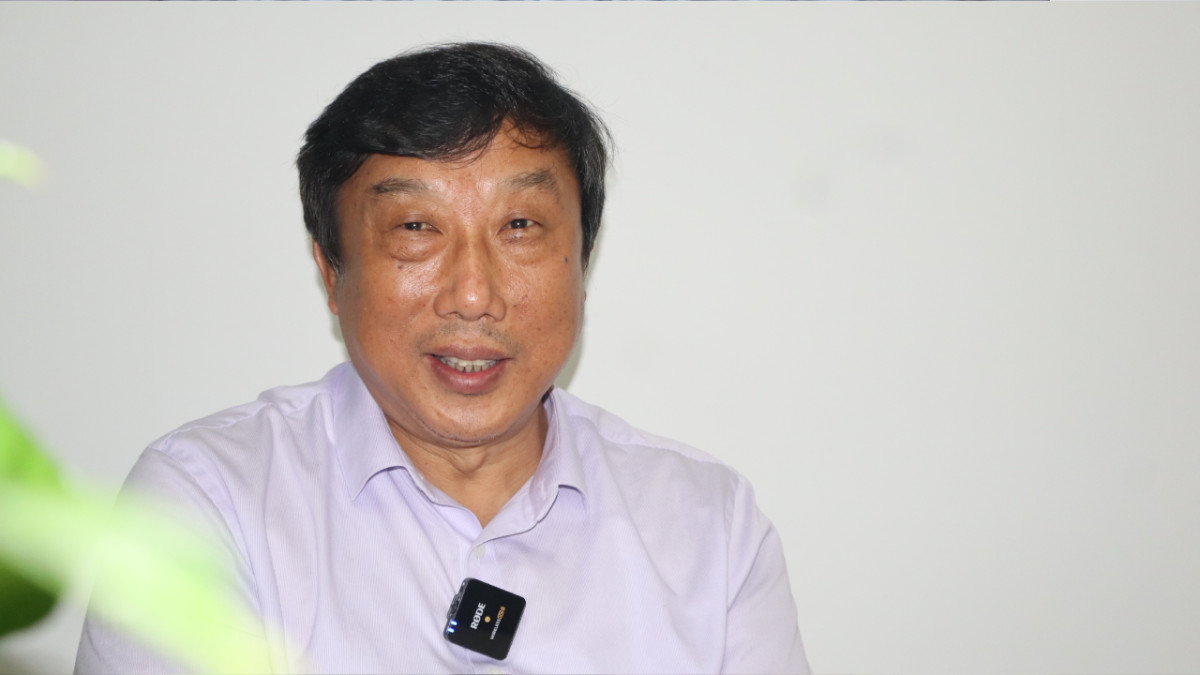
Thanks to the success and experiences of these 100 colleges, we hope to influence other vocational colleges. By 2009, the central government launched a new project incorporating 100 key vocational colleges, which received new missions and responsibilities, particularly enhancing school-enterprise cooperation.
It wasn't until 2019 that the Chinese government launched a new program, initially called the "high-quality educational school construction," which later evolved into the "double high-level plan." By 2019, there were 1,500 vocational colleges in China. The double high-level plan focuses on high-level vocational schools and high-level major clusters.
There have been many milestones in vocational college construction, from experimental to key level and now the double high-level plan. With each new program launch, we aim to further the momentum of vocational college development. As of 2019, the double high-level plan is expected to run for 15 years, with general evaluations every five years.
For example, vocational colleges under the double high-level plan must undergo program assessments at the end of every five years. If they fail, they won't be able to maintain their title or participate in the next period.
The government launched this plan for two reasons. Firstly, it provides funding, and colleges can apply for these budgets to enhance their potential. Secondly, winning a program can attract local government funding, mobilizing their participation.
This 15-year plan will lead to significant accomplishments. For instance, Ningbo Polytechnic University was chosen in the first batch of the double high-level plan and is now applying for the third batch. We'll spare no effort in achieving four key goals: first-class teaching personnel, first-class talent formation, first-class technological services, and curriculum internationalization.
Consistency and perseverance are crucial. If a school sticks to these principles, there will be no unachievable goals. Through these efforts, Chinese vocational colleges can have a solid foundation, promoting in-depth school-industry cooperation.
What motivated Ningbo Polytechnic (NBT) to establish the Luban Workshop, and how does vocational training contribute to its international cooperation efforts?
Thank you for this specialized question. It seems you have a deep understanding of vocational colleges. Speaking of the Luban Workshop's establishment, many Chinese colleges want to launch similar programs, but few succeed.
The Luban Workshop's establishment is related to Chinese President Xi Jinping's initiatives, particularly his idea of constructing a global community of shared future. In the 1980s and 1990s, China was relatively poor, and vocational college construction was a key factor in its economic development.
Having visited developing countries like Cambodia and Kenya, I reflect that their development paths are similar to ours. Since China has accumulated successful experiences, why not share them with other countries? Establishing the Luban Workshop and creating the Sichuan Road Department forced us to reflect on our competencies and principles.

We aim to construct a global community of vocational colleges, where every country can achieve satisfactory development. I've been working in global cooperation for years, and my willingness to promote this vocational education community has only grown stronger.
China's vast territory and past struggles with poverty have taught us the importance of vocational education in improving lives, especially in remote and underdeveloped areas. When discussing vocational education, we often use words like "assist" or "drive development." Helping remote areas is our responsibility and mission.
We've had success in assisting underdeveloped regions in China, such as Kunming City, Xinjiang Autonomous Region, and Qinghai Province. Our professors have gained valuable experience, and we believe we can use these resources to promote similar practices worldwide, aligning with our vision of a global village.
The Luban Workshop and double high-level education system could serve as a bridge for developing nations like Nepal. We hope that countries like Nepal can learn from China's development experiences, especially since Nepal's current GDP is similar to China's in the 1990s.
What success stories are there of the Luban Workshop, a Chinese vocational training program, in countries outside of China?
The training program is similar to what we have in recent days, and it's just a short-term training from the Luban Workshop. Moreover, the major sites of the Luban Workshop are overseas. There are a lot of successful workshops outside of China.
Can you provide examples from the 1980s to the present day, highlighting the role of vocational education in supporting China's economic development?
Back in 2017, I participated in a global summit in Kenya, where there were representatives from many countries. I presented a report on behalf of Chinese vocational colleges and professional education. The topic was 'Vocational Education: The Secret Weapon of China's Economic Development after Reform and Opening Up.
One key point is that in the early years of reform and opening up, Chinese industries were quite rudimentary, relying heavily on manual or semi-manual labor. This created a high demand for a large, low-cost workforce, which vocational education helped supply. At its peak, China had over 11,000 middle-level vocational colleges. However, as industries transformed, the quality of talent from these colleges no longer met the needs of upgraded industries.
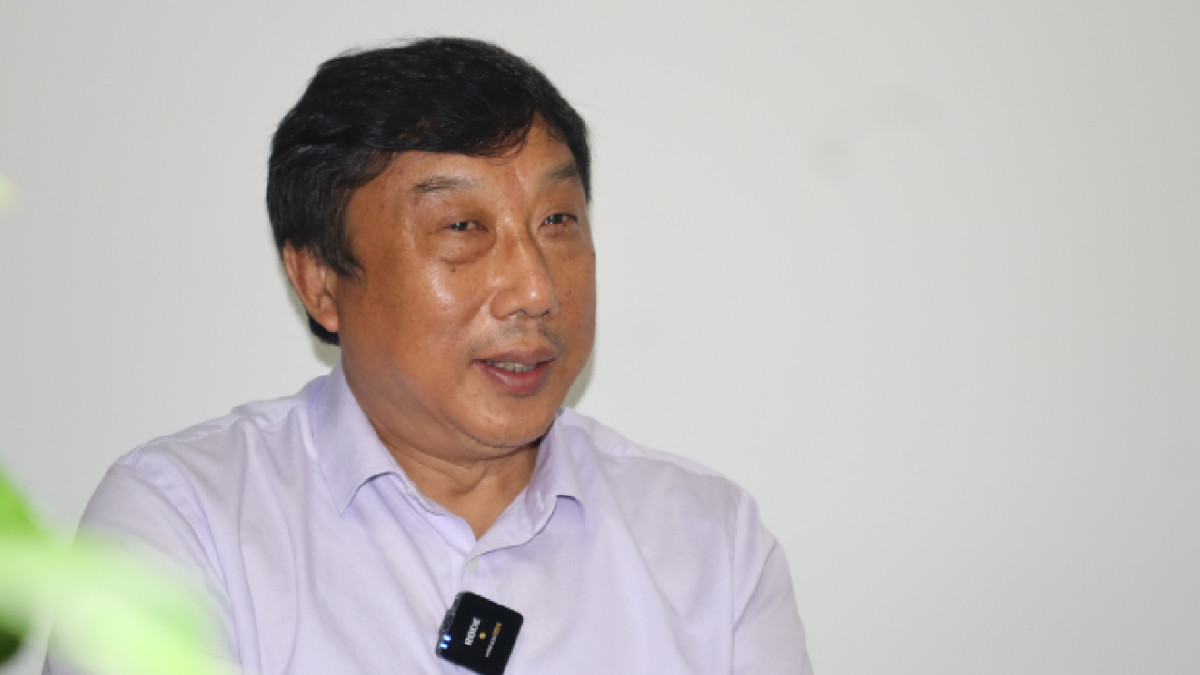
In response, vocational colleges had to adapt rapidly. Today, the number of middle-level vocational colleges has decreased to around 7,000, while higher-level vocational colleges have increased to about 1,600, with over 30 million students. With technological advancements, industries now require higher-skilled workers, leading to the upgrading of some vocational schools into universities and the addition of extra years of study to cultivate versatile talents. These high-level vocational colleges are found in every province and region, often near local industrial clusters.
Can you share your personal experience and reflections on China's development over the past four decades, and how it has impacted your life?
I was born in 1966, so I'm nearing my 60th birthday. I just happened to be born during a period of turmoil in China. What about life, food, housing, and the city? Can I explain the scene of my childhood, including this? Yeah, I was going to tell you about that because I experienced a lot in the past. I was born in the province of Inner Mongolia, in the north of China. I was living in a county-level city, and in my family, there were six children. I don't recall wearing any new clothes. Back in my childhood, I wasn't able to eat a lot of rice, let alone meat.
China was installing a planned economy, so each family had its quota of resources. At that time, the total population of China was over 800 million farmers, and industry was underdeveloped. Most people lived in small, one-floor houses, and there were no high buildings. Despite these unsatisfactory conditions, our parents still told us that receiving an education was very important.
In this context, in the mid-1980s, I was admitted to university. In the 1990s, I obtained my master's degree, and in the 21st century, I earned my PhD. When I was young, receiving an education felt passive, like something I had to do. But as I grew up, I began to understand the importance of actively gaining knowledge.
Later in life, I moved to the south of China and worked in enterprises and factories during the early years of my career. Having experienced poverty, I cherish what we have now. Working in enterprises also taught me about their talent needs. I've been working in education for over 30 years, investing a lot of time and energy, not just for the wages but because I have a passion for it.
You mentioned my personal experiences over the past four decades. I have experienced a lot, and it's a long story, so I'll condense it into a few descriptions. One thing education taught me is that we must show mutual respect, not only between people but also between countries. In someone's hour of need, we should lend a helping hand.
Whenever a new foreign student comes to our university, I tell them to have a sincere love for their country. After receiving an education here, they can bring changes back to their hometown. That's the significance of receiving an education. Through education, the world can have more peace, and everyone can enjoy their lives. Isn't it good?
How can Nepal and China collaborate in vocational education and youth exchange, considering their different demographics?
China's declining population trend is uneven across regions. For example, in Shenzhen, a city that attracts a large workforce from other areas, the average age is just over 30. A younger average age in a city often indicates more development opportunities. To ensure regional or national development, it's crucial to tackle education and human resources first. I believe high-quality education is essential for young people worldwide.
Given Nepal and China's long-standing friendship and geographical proximity, I think there's significant potential for cooperation in education. Successful projects in China could be replicated in Nepal. For instance, in developed cities like the one we're in, many locals have their own companies, and people can find employment either by working for others or starting their own businesses.

In Nepal, there are relatively complete industrial chains, offering numerous job opportunities, with an overall employment rate of over 98%. However, this may not be the case in remote areas, where people still find ways to earn a living, such as through farming or selling products. The internet has also enabled more people to start their own businesses with greater flexibility and freedom.
The prerequisite for all these activities is education, which helps people think creatively and solve problems. Therefore, I believe it's essential to increase interactions and exchanges between Nepal and China, allowing us to inspire and learn from each other.
Thank you for this message. We are nearing the end of the interview. Could you please summarize Ningbo Polytechnic and its mission in one sentence?
We should adhere to the initial principle of holding vocational education. As a vocational college, it should be oriented towards service. My position for Ningbo Polytechnic University is to establish itself as a high-level, service-oriented university.
We can understand the concept of service through three different lenses. The first is serving the needs of the entire industry. The second service is supporting the development needs of vocational education. The third service is contributing to the mission of national diplomacy.
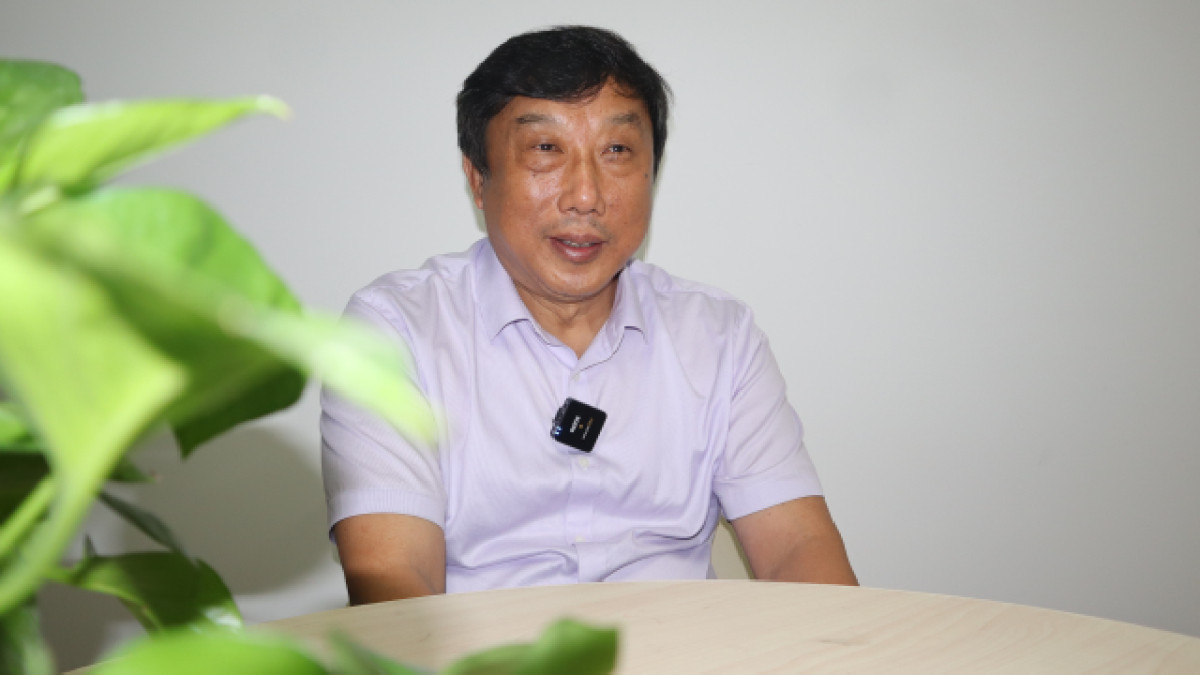
Of course, from a micro perspective, we should serve the needs of students and professors. This is why the values of our university, the sense of belonging, and the acknowledgement of all personnel are quite significant.
I'm glad to receive this interview and genuinely hope that in the future, you can promote more ideas of Chinese vocational education. I also hope that new institutions or schools will visit us, so we can imagine a better plan with a common vision. We're more than willing to act as a bridge to facilitate cooperation not only between your institution and Ningbo Polytechnic University but also with other partner universities.


.gif)






.jpeg)
.gif)








